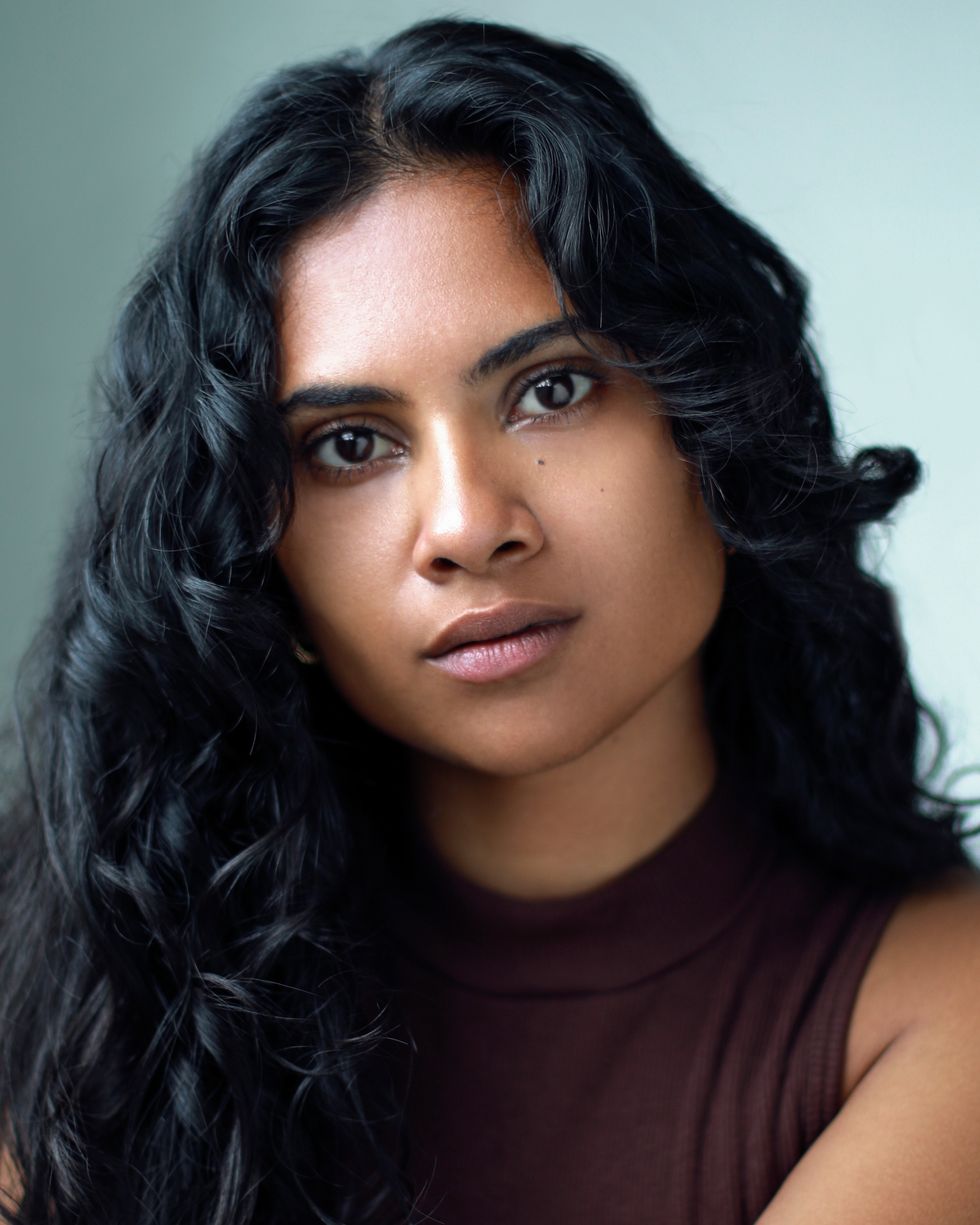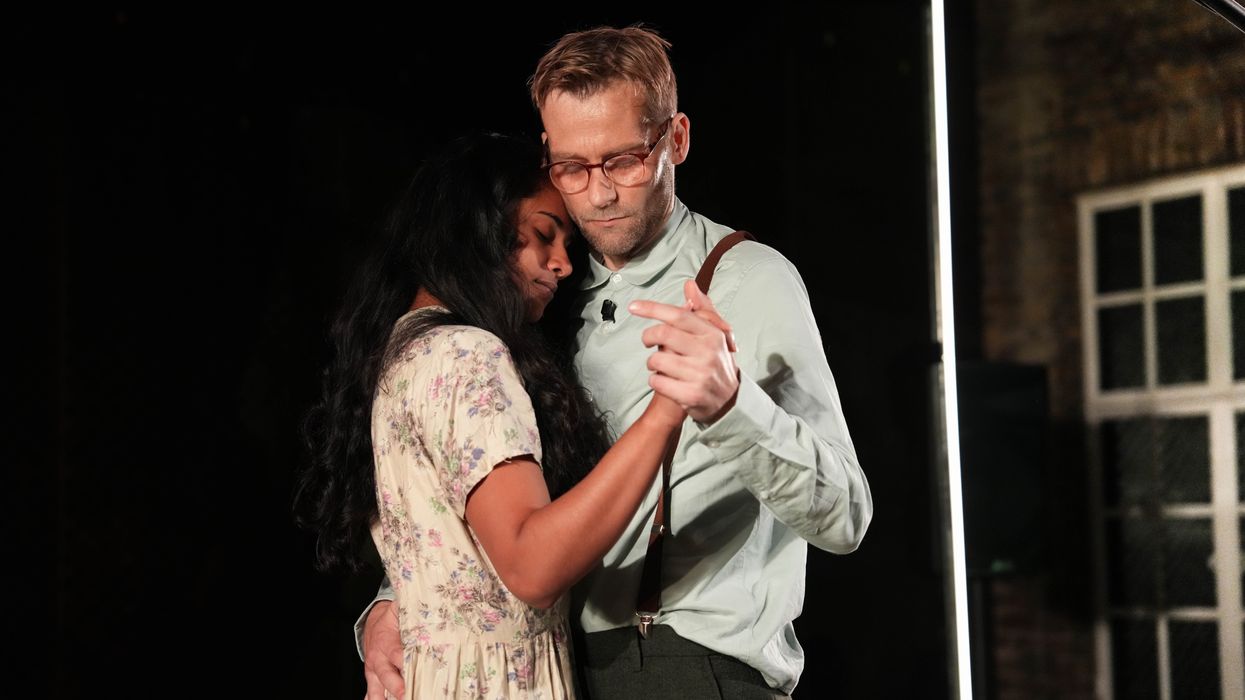ACTRESS Neetika Knight has described the experience of performing in an immersive adaptation of 1984, George Orwell’s classic of a dystopian future with a surveillance society.
“I was out of character and in the toilet when I bumped into an audience member. I had to do the interaction in character, while washing my hands and drying them, which was quite funny,” Knight told Eastern Eye.
“I don’t think she knew if that was part of the play.”
Two months into the run of the play at the Hackney Empire in London, Knight said the immersive element of the play has made her a better actress.
In the latest stage version of 1984, the actors have conversations with members of the audience and move around different rooms within the venue.
Knight said, “It’s very intense. You’ve got to know the material so well. The minute you’re in that building, and people start coming in, you’re in character.
“Even when you’re walking around the building and somewhere where the audience shouldn’t be, you have to stay in character and guide them through the space.
“It’s definitely more difficult than a regular play, but it’s also more fun. You get to have a more personal relationship with the audience and that’s very exciting.”
Published in 1949, the book is set in Oceania (in 1984), one of three perpetually warring totalitarian states.
Oceania is governed by the all-controlling Party, which has brainwashed the population into unthinking obedience to its leader, Big Brother.
The ubiquitous slogan, “Big Brother is watching you”, serves as a constant reminder that Party members are not entitled to privacy. They are subject to constant surveillance to ensure their ideological purity.
“1984 is set in a dystopian future which is actually kind of like our day and age,” said Knight.
“One of the big things in the book is surveillance. People are constantly being watched on these things called telescreens (which plays propaganda material and allows Big Brother to see what people are doing), even in their homes.
“That resonates not only with surveillance we have today, in terms of cameras on the street, but also with social media, where we’re actively letting people into our homes, into our lives, and portraying certain images of ourselves to adhere to social norms and to fit in with society.
“It’s also a bit scary, because we don’t know what happens with our data and how it’s ultimately interpreted.”
Knight (in her first major role) plays the character of Julia who embarks on a forbidden relationship with Winston Smith, played by Joe Anderson (Twilight: Breaking Dawn, The Crazies and The Grey) who is responsible for rewriting past records to align with the Party’s current opinions. However, they both despise the government and join a rebel group called the Brotherhood, whose goal is to overthrow the government.
Orwell wrote 1984 to examine the repercussions of a government that could exercise total control over its citizens. Oceania’s totalitarian regime is able to manipulate their citizens into believing anything, which allows the rulers as much power as they could possibly want.
Knight said, “Julia and Winston’s love story goes against the government, because they should only love the Party. They should only work for the Party. They should have no individual instincts or wants and desires.
“Today, we obviously have much more inclusive spaces and societies, but we are still living in a world where it’s not right in certain places to love certain people. And with certain politics, we’re not fully allowed to be who we are or not all people are treated the same, which is a great shame.”
There has been a 1984 film starring John Hurt and Richard Burton as well as numerous play adaptations around the world.
Knight said in this version, it’s a sign of progress to see a south Asian play Julia’s role.

“I don’t know if her ethnicity is 100 per cent laid out in the book, but you assume that she’s Caucasian,” the actress said. “For this role, it doesn’t matter what ethnicity you are, it’s about the circumstances a person finds themselves in a society that’s not allowing them to be their true selves and people can relate to that.
“I’m very honoured to be able to play this role and represent south Asians.”
Knight said the impact of her performance on the audience is clear to see.
“The wonderful thing is it really changes the audiences who come to see the show. When I go to see theatre, the majority of people in the audience are white, middle class; but, with this play, I’ve noticed, every performance, there’s south Asians in the audience.
“I’m like, ‘wow, that’s really cool’. Having this representation has allowed a broader audience to come and that’s what we should be striving for.”
Knight said her hope was that young south Asians who come to watch her perform will be inspired to get into acting – something she admitted wasn’t an easy road for her.
After a degree in economics and development studies, Knight shifted her focus to acting and attended Mountview drama school. “I always knew I wanted to be an actor, but with the expectations of my parents and people around me, I never felt like it was a reliable career to embark on,” she said.
“I reached a point where I just realised I can’t do a nine to five job, it’s not going to make me happy. I’d honestly rather work in a bar and try and be an actor than continue with this.”
Watching the progress of actors of south Asian heritage on stage and on screen gave her added motivation that she could carve out a successful career.
Watching Iman Vellani, who played Kamala Khan in the miniseries Ms Marvel and the film The Marvels, inspired Knight. “She’s so cool,” the actress said.
“Growing up, I always loved Marvel, but I never really considered that there was a lack of diverse representation because that was what was just given to you.
“I never thought it was possible to have a mainstream Marvel TV show centred around an Indian woman, which is incredible.
“It’s an exciting time. I really hope I can be part of projects like Ms Marvel, that are broadening diversity, because we talk about it a lot, but I don’t think we’re there. I want to be part of the process and really push that forward.”
In 1984 is on at Hackney Town Hall till next Sunday (22)




